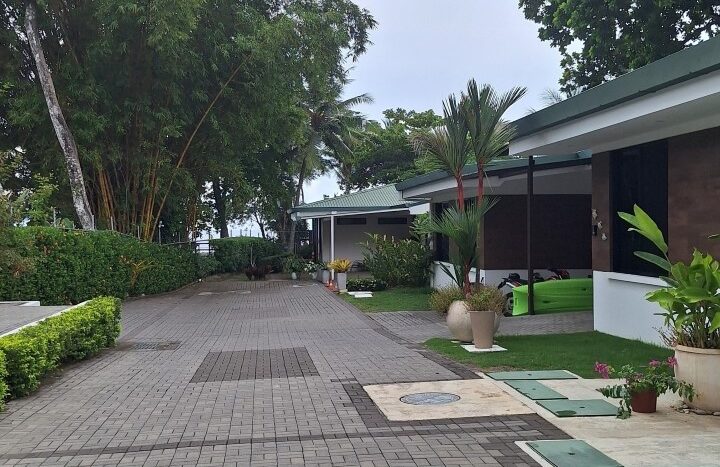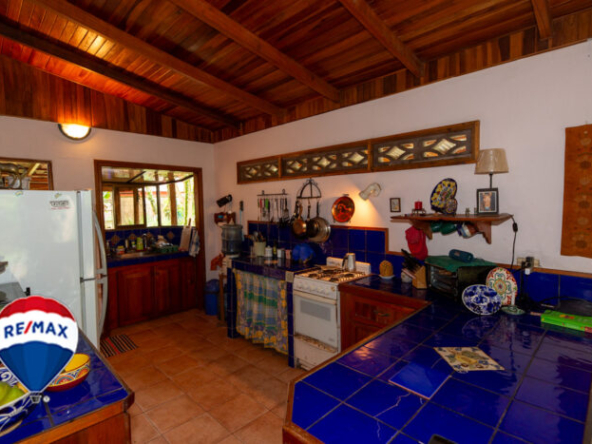Costa Rica has long been a favorite destination for Americans seeking adventure, relaxation, and a better quality of life. With its beautiful beaches, lush rainforests, and welcoming culture, it’s no surprise that many Americans choose to buy a home in this tropical paradise. But, while Costa Rica is known for being expat-friendly, buying property here as an American requires understanding the local real estate laws, market trends, and processes.
Here’s a detailed guide to help you navigate buying a home in Costa Rica as an American.
Why Americans are Buying Homes in Costa Rica
Costa Rica’s appeal to American homebuyers stems from several factors:
- Tropical Climate: With year-round warm temperatures and stunning natural beauty, Costa Rica offers the kind of environment that many Americans dream of. From sunny beaches to cool mountains, the country offers a variety of climates and landscapes.
- Affordable Living: While property prices vary by location, Costa Rica generally offers affordable real estate compared to U.S. markets. In addition, the cost of living in Costa Rica can be lower, making it attractive to retirees and families alike.
- Stable Government and Safe Investment: Costa Rica has a stable democracy with a strong legal system that protects foreign property ownership. Unlike some other countries, foreigners enjoy the same property rights as Costa Rican citizens, making it a safe place to invest in real estate.
- Proximity to the U.S.: With direct flights from major U.S. cities, Costa Rica is easily accessible. Many Americans choose to buy vacation homes or rental properties that they can visit regularly.
- Expat-Friendly: Costa Rica has a thriving expat community, particularly in areas like Guanacaste, the Central Valley, and the Nicoya Peninsula, making it easy for Americans to settle in.
Steps to Buying a Home in Costa Rica
1. Find a Reputable Real Estate Agent
Working with an experienced real estate agent who understands the local market is crucial. Look for an agent who is well-versed in Costa Rican real estate law, speaks fluent English, and has a solid track record with foreign buyers. Your agent will help you find properties that fit your needs and guide you through the legal processes involved in purchasing a home.
2. Understand Property Ownership Rights
One of the most attractive aspects of buying a home in Costa Rica is that foreigners enjoy the same property ownership rights as Costa Ricans. This means that, as an American, you can legally own 100% of a property under your name or through a corporation.
The two types of property ownership in Costa Rica include:
- Fee Simple Ownership: This is the most secure form of property ownership, granting the buyer full legal rights to the land and any structures on it.
- Concession Property: Some properties, particularly beachfront ones, are located within the Maritime Zone (200 meters from the high tide line) and are governed by special regulations. These properties are leased from the government, and concessions are granted for a specific period, typically 20 to 50 years. Ownership rights are more limited, so it’s essential to fully understand the implications of purchasing concession property.
3. Hire a Lawyer
Hiring a trustworthy lawyer is essential when buying real estate in Costa Rica. Your lawyer will verify that the property has a clear title, free of any liens, encumbrances, or disputes. They will also guide you through the due diligence process, ensuring that the sale is legitimate and that you understand all legal obligations.
4. Conduct Due Diligence
Before finalizing the purchase, it’s critical to conduct due diligence. Your lawyer will help ensure:
- Title Search: A thorough title search is done to verify the property’s legal status and ensure no outstanding debts or claims are attached to it.
- Land Use Regulations: Check that the property complies with local zoning laws, environmental regulations, and building codes. This is especially important in coastal areas, protected zones, or near national parks.
- Survey: A topographical survey ensures that the property boundaries match those recorded with the National Registry.
5. Make an Offer and Sign a Sales Agreement
Once you’ve found the perfect property, your agent will help you submit an offer. If the offer is accepted, you’ll sign a Sales and Purchase Agreement (SPA), which outlines the terms and conditions of the sale, including the agreed price, payment plan, and closing date. At this point, you’ll typically make a deposit (usually 10% of the purchase price).
6. Set Up a Corporation (Optional)
While foreigners can purchase property under their own name, many choose to set up a corporation (commonly known as an S.A. or SRL in Costa Rica) to hold the title to the property. Doing so offers several advantages, such as easier property transfers and reduced personal liability.
7. Transfer of Funds
International property transactions require transferring funds from your U.S. bank account to Costa Rica. It’s important to work with a reliable escrow service to handle the money transfer securely and in compliance with Costa Rican law.
8. Closing the Sale
The closing process in Costa Rica typically takes 30 to 60 days. At closing, the title will be officially transferred to your name or your corporation’s name, and the remaining balance will be paid to the seller. Both parties’ lawyers will be present to ensure all legal aspects are completed.
Costs Associated with Buying a Home in Costa Rica
In addition to the property’s purchase price, expect additional costs such as:
- Closing Costs: These usually amount to about 3-4% of the property’s purchase price, including legal fees, notary fees, and government taxes.
- Property Taxes: Property taxes in Costa Rica are low, at just 0.25% of the property’s registered value, payable annually.
- Homeowners Insurance: Costa Rica offers a range of insurance options for homes, including coverage for fire, theft, and natural disasters.
- HOA Fees: If you’re buying a condo or home in a gated community, be aware of monthly homeowners association (HOA) fees.
Popular Areas for Americans to Buy Homes
1. Guanacaste
Known for its dry climate, world-class beaches, and luxury developments, Guanacaste is a top choice for Americans seeking both vacation and retirement homes. Popular towns include Tamarindo, Playa Flamingo, and Nosara.
2. Central Valley
For those looking for a cooler climate, the Central Valley offers stunning mountain views, lush green landscapes, and proximity to the capital, San José. Towns like Escazú, Santa Ana, and Atenas are popular with expats due to their modern amenities.
3. Southern Zone
The Southern Zone, including Dominical, Uvita, and Ojochal, is perfect for nature lovers and those seeking a more secluded lifestyle. The area offers a mix of beachfront homes, luxury villas, and eco-friendly properties.
4. Nicoya Peninsula
Known for its relaxed, bohemian vibe, the Nicoya Peninsula is home to towns like Santa Teresa, Malpais, and Montezuma. This region is ideal for surfers, yoga enthusiasts, and anyone looking for a laid-back beach lifestyle.
Final Thoughts on Buying a Home in Costa Rica
Buying a home in Costa Rica as an American is an exciting venture that offers the potential for a fulfilling lifestyle in one of the world’s most beautiful countries. With the right guidance from real estate agents and legal professionals, the process can be smooth and rewarding.
Whether you’re planning to move permanently, purchase a vacation home, or invest in rental property, Costa Rica’s real estate market has plenty to offer. By following the right steps and conducting thorough research, you’ll be well on your way to owning your dream home in paradise.

